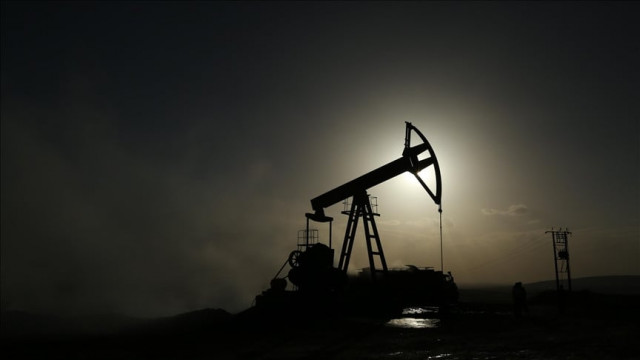Petroleum product prices may see reduction
Price of petrol and HSD likely to decrease by Rs7.50 and Rs12.37 per litre respectively

The price of petrol is likely to go down around Rs7.50 per litre, while the price of High-Speed Diesel (HSD) may be reduced by Rs12.37 per litre for the second half of December 2022, according to oil price forecasts from energy experts.
If the government increases the Petroleum Levy (PL) and adjusts the arrears of exchange loss on the Free on Board (FOB) basis, there will be no reduction in petrol and HSD prices in the next fortnight.
Sources said that the price of petrol is likely to go down by Rs7.50, from Rs224.80 to Rs217.30 per litre, while the price of HSD is expected to slide by Rs12.37, from Rs235.30 to Rs222.93 per litre.
Sources in the Petroleum Division said that the government is likely to increase the levy on HSD, Superior Kerosene Oil (SKO) and Light Diesel Oil (LDO). It is also likely to adjust the arrears of exchange loss in the petroleum prices during the second half of December.
“If the government increases the PL and adjusts the arrears of exchange loss, then there are fewer chances of the price of petrol and HSD coming down. The government has committed to the International Monetary Fund (IMF) that it will impose general sale tax (GST) on petroleum products once they have reached the maximum limit for PL which is Rs50 per litre on each petroleum product.
Currently, the government is charging a PL of Rs50 per litre on petrol, Rs25 per litre on HSD, Rs7.01 per litre on SKO and Rs15.39 per litre on LDO. The government, however, has promised the international lender that it will increase the PL on HSD to Rs50 by April 2023.
LNG price increase
The Oil and Gas Regulatory Authority (Ogra) on Wednesday raised the price of LNG for consumers of both Sui Northern Gas Pipeline Limited (SNGPL) and Sui Southern Gas Company (SSGC) for the month of December.
The regulator worked out this little increase on 10 LNG cargoes delivered under long-term and short-term agreements. The Pakistan State Oil (PSO) supplied nine cargos at an average delivery ex-ship (DES) of $11.2816 per mmbtu under the long-term LNG agreements with Qatar
Gas, while one cargo was received under spot purchase of $11.1228 per mmbtu from a private company.
The government had secured ten LNG cargos for December 2022 and January 2023.
For consumers on SNGPL’s network, the regulator notified an increase for the price of LNG from $14.4387 per mmbtu in November to $14.4666 per mmbtu for the month of December 2022 or an increase of $0.0279 per mmbtu. This covers Punjab, Azad Jammu & Kashmir and Khyber-Pakhtunkhwa areas.
The consumers under SSGC’s network will pay $14.8454 per mmbtu for the current month against a price of $14.8105 per mmbtu fixed for November, or an increase
of $0.0349 per mmbtu for LNG supply for the month of December. The area covered under the gas utility is Sindh and Balochistan. The unaccountable for gas (UfG) for SNGPL has been incorporated on provisional basis at 0.38% in respect of transmission and 7.86% in respect of both transmission and distribution, as per SNGPL’s claim over the review of the estimated revenue requirement for FY2021-22. The UfG for SSGC is 0.12% with respect to transmission and 12.32% for both transmission and distribution.
PSO, which is a key importer of LNG from Qatar, supplies the commodity to gas-utilities that distribute and market it to customers. Previously, the power sector was PSO’s key defaulter. Of late, however, SNGPL has become the key defaulter with a debt of Rs373 billion on account of LNG supplies.
The 10% annual depletion of indigenous gas resources and a lack of major oil and gas recoveries in the country have increased reliance on LNG. Due to a global shortage of LNG, given supply concerns brought on by the Russia-Ukraine war, Pakistan has been unable to source spot LNG cargoes from private supplier.



















COMMENTS
Comments are moderated and generally will be posted if they are on-topic and not abusive.
For more information, please see our Comments FAQ